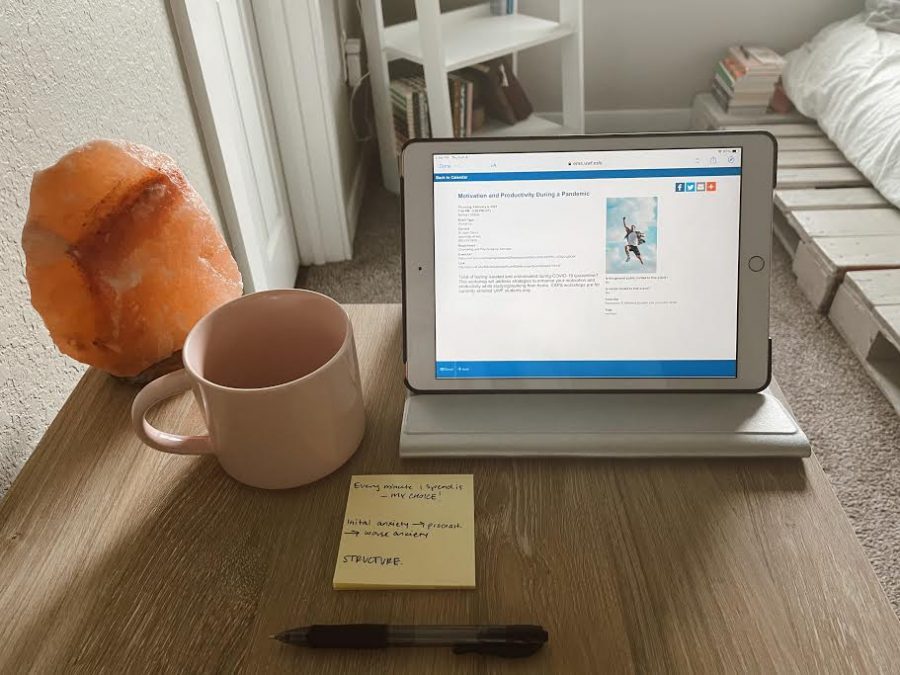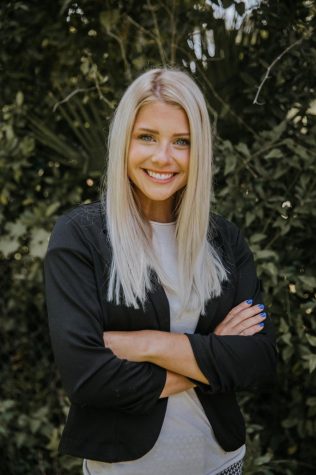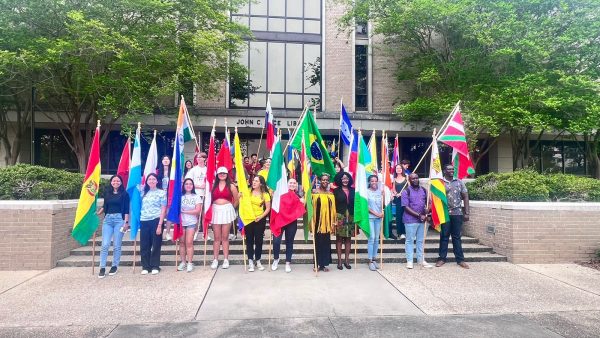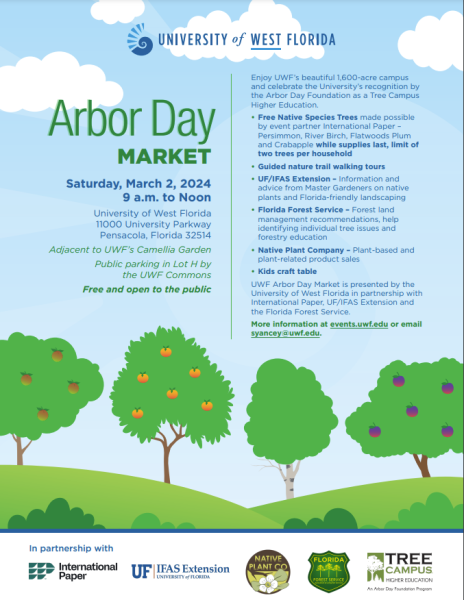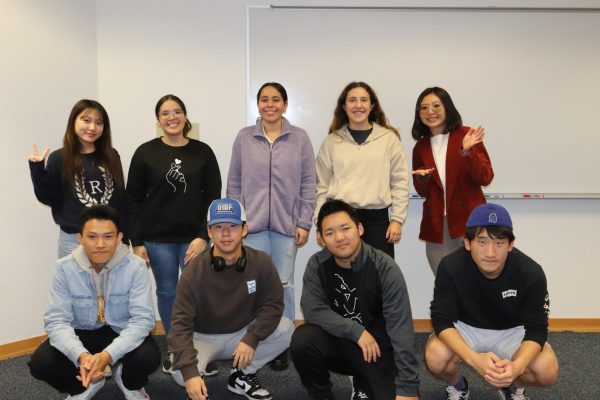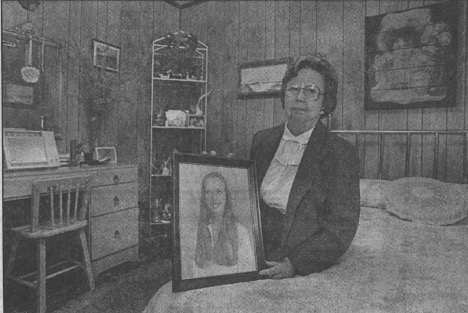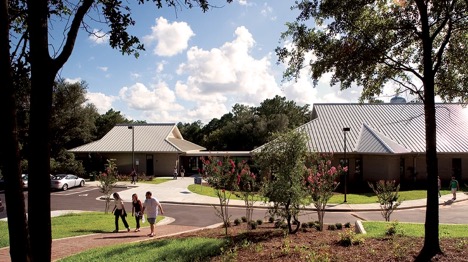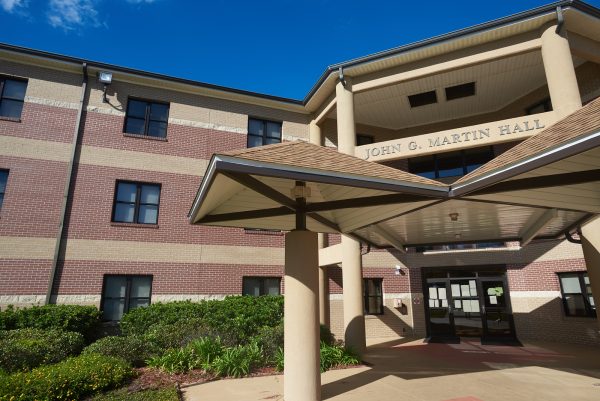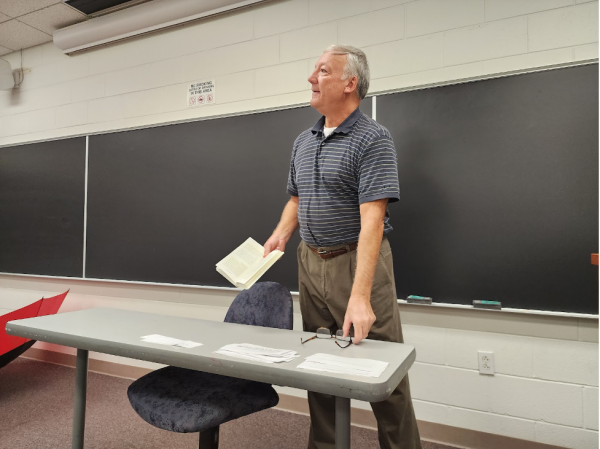Motivation and Productivity During a Pandemic Workshop
February 8, 2021
Thursday, February 4, the UWF Counseling and Psychological Services hosted a virtual workshop aimed to help students manage their academics and mental health during the COVID-19 pandemic.
Adetoyosi Obikoya, a Pre-Master’s intern for the Counseling and Psychological services worked with Katya Knapp M.A. to put together an online presentation that addressed strategies to enhance student’s motivation and productivity while working from home.
Through the use of interactive questions and illustrative graphics, the group was able to have a discussion about their levels of motivation and challenges that they have faced throughout the past year.
“I am very pleased with the turnout for this workshop,” Obikoya said. “As Katya and I were gathering information for this presentation, we felt that it was important to keep the needs of the student body in mind.”
Students reported that family problems, isolation, missing holidays, canceled activities, boredom and less opportunities to get to know your professor one on one have all been barriers that have limited their ability to stay motivated and accomplish their goals.
“As a center, CAPS is seeing more students who report struggles with motivation and productivity with all online classes,” Obikoya said. “I hope that students will be able to use the tips and strategies recommended in this workshop to excel personally and academically this semester!”
The presentation showed that one of the best ways to help yourself during this time is to separate and be aware of what you can and cannot control.
You are able to control your perspective, turning off the news, limiting social media, how you follow CDC guidelines, and your own social distancing. However, you cannot control whether or not others are following social distancing, the actions of others, how long this lasts, or how other people react.
Unfollowing toxic people, journaling, dropping toxic friends, spending time with family, and exercising more were all practices that students claimed help them throughout the past year.
Obikoya also covered neuroplasticity, the ability of the brain to adapt to changes in an individual’s environment by forming new neural connections over time, and how that can be applied to habit formation and a change in routines.
“The workshop gave me a lot of tools to conquer school and the pandemic,” a UWF student said. “It gave me hope to know that there is a lot of science behind why we behave and how we can change that.”
Some of the recommendations for creating a strong foundation or structure for yourself during these times include starting your day with a task already completed, getting dressed, creating a schedule, studying without distractions, doing kind things for yourself, appreciating the small things, and rewarding yourself for successful studying.
Finding a “mantra” or saying that you are able to come back to throughout the day also helps to keep you focused on the larger goal and brings you back to the present. Examples include, “All I have to do is start” and “I am capable.”
The students who participated in this workshop were extremely interactive and showed their praise for Obikoya’s time and dedication.
“The motivation and productivity workshop was a highly engaging, interesting and illustrative presentation with an excellent presenter who both invited and interacted with commentary provided by attendees,” UWF student Lisa McKinney said. “I look forward to future workshops from CAPS.”
“Make Your Bed” by U.S. Navy Admiral William H McRaven was mentioned throughout this workshop and asserts that by making your bed, you start your day out with a simple task already completed and it sets the tone for the rest of your day.
McRaven’s 2014 commencement address at the University of Texas at Austin has inspired millions and is linked at the end of this article for your viewing.
The exercise was also highly suggested is scientifically proven to improve mood, sleep, cognitive function, and reduce stress.
The UWF Recreation Facebook hosts live, online workouts that you can participate in from the comfort of your own home and the center is open for in-person reservations.
UWF Counseling and Psychological Services offer teletherapy, Therapy Assistance Online (TAO), and crisis counseling 24/7. (850) 474-2420 and dial 6.
Follow CAPS on Facebook (@uwfcaps) and Instagram (@uwfcounseling) for more tips and resources.
CAPS Website: https://uwf.edu/academic-engagement-and-student-affairs/departments/counseling-and-psychological-services/
Admiral McRaven’s Speech: https://www.youtube.com/watch?v=pxBQLFLei70
UWF Recreation Facebook: https://m.facebook.com/uwfrecreation/

